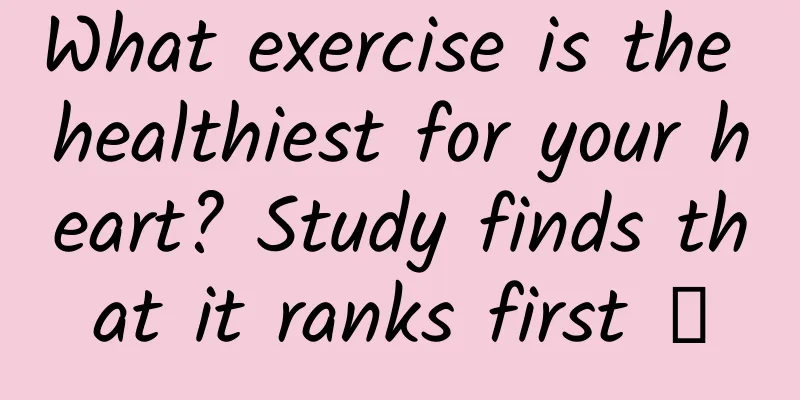Vitamin supplements during lactation

|
A breastfeeding mother needs to have a healthy and strong body so that the baby can be healthy and strong after consuming milk from the breastfeeding mother. Therefore, breastfeeding mothers need to supplement various nutrients, such as vitamin K, vitamin A, vitamin B, etc. So what are the channels for supplementing vitamins during breastfeeding? How can we take various vitamins more conveniently? Let us share with you in detail below. (1) Vitamin A. Only found in animal foods: animal liver, cod liver oil, milk, eggs. However, the carotene in plants can be converted into vitamin A in the human body. Various types of carotene are found in green leafy vegetables, yellow vegetables and fruits, such as spinach, rapeseed, pea sprouts, green peppers, broccoli, carrots, pumpkin, fungus, apricots, persimmons, etc. When consumed together with fat, it can promote the body's absorption of vitamin A. (2) Vitamin B1. Foods containing vitamin B include polished round-grained rice, flour, peanuts, milk, beans, nuts, animal hearts, celery leaves, asparagus, etc. Cereals also contain vitamin Bi, but fine processing can easily destroy vitamin Bi, so grains should not be eaten too finely, and you can also get corresponding nutrition by choosing coarse grains. (3) Vitamin B2. Foods containing vitamin B2 include animal liver, eggs, milk, soybeans, sesame seeds, Chinese mustard, rapeseed, spinach, celery, etc. (4) Vitamin B6. Foods containing vitamin B6 include beef, chicken, fish, animal offal, oats, wheat bran, corn, soybeans, mung beans, walnuts, carrots, mushrooms, etc. (5) Vitamin B12. It is mainly found in meat, shellfish, fish, eggs, and animal liver. (6) Vitamin C. Foods rich in vitamin C are mainly fruits and vegetables, such as cabbage, rapeseed, Chinese mustard, eggplant, green pepper, broccoli, cauliflower, coriander, tomato, date, citrus, apple, grapefruit, orange, lemon, hawthorn, kiwi, etc. Fruits and vegetables must be kept fresh to avoid loss of vitamin C. (7) Vitamin D. Foods rich in vitamin D include cheese, eggs, meat, beef liver, butter, etc. Getting more sun exposure can promote the synthesis of vitamin D in the body. (8) Vitamin E. Foods rich in vitamin E include cooking oils and whole grains, such as wheat germ oil, corn oil, peanut oil, sesame oil, beans, etc. (9) Vitamin K. Foods rich in vitamin K include egg yolks, animal liver, alfalfa, broccoli, spinach and other dark green vegetables. However, excessive intake of vitamin K can cause blood coagulation, so it should be consumed in moderation. |
<<: Snacks to eat during breastfeeding
>>: What causes eczema on women’s faces?
Recommend
What is the cause of belly button pain?
The belly button is most easily overlooked by eve...
What are the benefits of eating sushi? The correct way to eat sushi
Sushi is not just food, it is a fine art. The bea...
The harm that tics bring to children is not only the symptoms, but most parents don’t notice it.
Misconceptions about tics "Tics are more com...
What are the rehabilitation exercises suitable for lumbar muscle strain?
I have previously told you that in addition to re...
33 days of pregnancy, abortion or medical abortion
Pregnancy is a good thing for many people, but fo...
Research shows that eating garlic for many years reduces the risk of death from stomach cancer
“If you don’t add garlic to your noodles, the fla...
How long does it take to clean up the bad smell after abortion?
When women become pregnant unexpectedly, they wil...
What are the symptoms of cervical relaxation?
Most women are relatively familiar with cervical ...
Is frozen Basa fish nutritious? How to thaw Basa fish
Basa fish is a kind of aquatic fish with extremel...
Gout is becoming more and more common. To explore the causes, treatment and prevention of gout, please bookmark
Many of us are familiar with the "three high...
What to do if there are few basal follicles? Experts give you tips!
The number of follicles in each woman is differen...
Is durian the king of fruits or the queen of fruits? How to choose durian flesh to make it delicious
In addition to sugar, durian pulp also contains p...
Is there any trace after a person has passed away?
Abortion is very harmful to women's uterus, a...
The effect of women drinking houttuynia water
Houttuynia cordata root is a kind of aquatic plan...
Analysis of the causes of tubal pregnancy
Tubal pregnancy is a relatively dangerous conditi...









